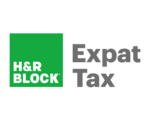Tax rates are uniform for Chinese nationals and for foreigners. Expatriates who live in China for a limited time are only taxed on the income they earn within the country (although there are some exceptions for very short stays of foreign nationals from countries which have an income tax treaty with China). Any income from elsewhere is tax free. Expatriates who live in China for more than five years have to pay tax on all their income, whether generated in China or elsewhere.
Normally, your employer will withhold the tax from your salary and pay it to the tax authorities on a monthly base. However, it is worth keeping receipts (fapiao) for things like meals and laundry services, as you can offset these against your taxable income, as well as ‘reasonable’ relocation costs, business trip expenses and language training. VAT in China is 17% for most products.
Tax-free imports to China
A long-term expatriate resident is allowed to bring into China a reasonable quantity of tax-free personal belongings, including a certain amount of clothing, small household appliances and books. In order to benefit from the tax-free allowances, your need to present to customs authorities your long-term residence certificate, your passport, your employer's business license and any available receipts and invoices for the items being brought into the country.
Items over and above the tax-free amount are taxed at between 20% and 100% of their official value. Imported cars are taxed at around 100% of their 'official price' (often much higher than their actual price), plus a 20% licence plate tax. Details of the duties to be paid on various items can be obtained from the Chinese consulate in your home country.
Seeking tax advice
Given that tax laws are constantly changing and that tax evasion can lead to hard punishments, it is worth consulting an expert if your situation is complex. There are plenty of tax consultants in China, but you can also contact an international tax consulting company that specializes on expatriates.


